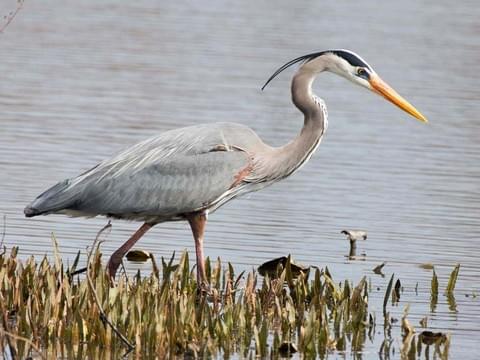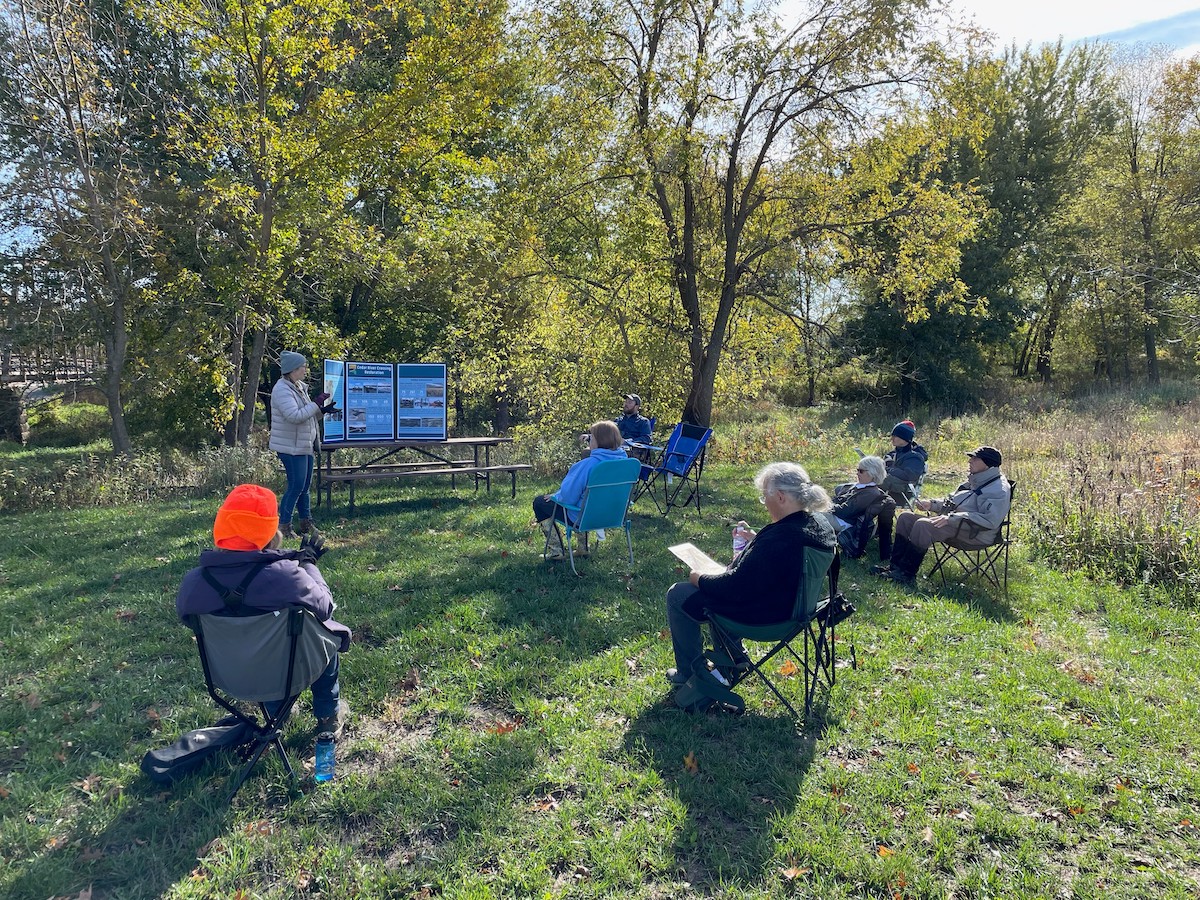About Iowa City Bird Club
The Iowa City Bird Club was organized in the mid 1970s as a University of Iowa student organization. Over the years it evolved into a more formal club, not affiliated with the University of Iowa. Our mission is to promote the enjoyment, study, and conservation of birds in their natural habitats. The Iowa City Bird Club Inc. is a nonprofit corporation under Chapter 504 of the Code of Iowa. ICBC brings birding to the lives of over 200 members from Iowa City, Coralville, North Liberty and beyond.
Recreation, community and an appreciation of nature are huge parts of our frequent field trips, which are guided by local expert birders. We visit a variety of habitats, mostly in Johnson County but some farther afield in Iowa. Unique to our club are Warbler Walks that happen during peak migration season in May. Each weekday morning, we walk through an urban forested park, Hickory Hill Park of Iowa City. With help from local experts, we identify bird sightings and sounds,
Education is an integral part of our mission. A guest presentation is the main focus during our monthly meetings. Topics include birding trips around the world, identification tips, conservation and habitat information, where to bird, and information on technology for birding.
Other educational opportunities include seasonal newsletters and a Beginning Birding Course each spring. This five week course helps newcomers get a comfortable and confident start into the world of birding.
Conservation work is done by our members through bird counts, etc. which help advance the science of Ornithology. The Christmas Bird Count (CBC) is an early winter census of bird populations; this is part of a national census sponsored by the National Audubon Society. The Spring Migration Count is done by teams of local birders in May, in order to provide information about migration patterns. Kent Park bird walks provide county officials with useful data about bird habitat. Our club also contributes funds to Iowa Audubon in order to improve bird habitat in Iowa.


